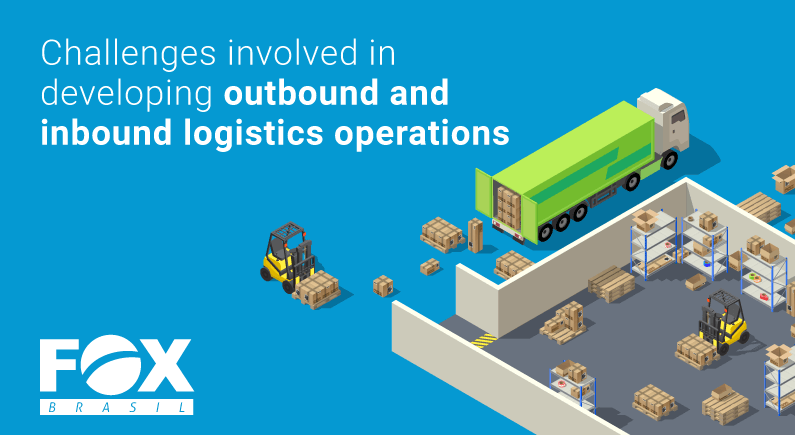Challenges involved in developing outbound and inbound logistics operations

Understand Logistics & Freight
Nowadays, logistics is seen as an extremely strategic element in the corporate world, with the potential to aggregate much value to the quality of services provided to your customers. At the same time, companies that invest in their outbound and inbound logistics processes can reduce costs, boost productivity, strengthen their brand image, among several other advantages.
It is common to associate the logistics activities involved in a supply chain with the distribution and transportation of goods from a company to its customers. However, the processes necessary for any supply chain to function well go far beyond just the final delivery of products. Hence the importance of differentiating the concepts of outbound and inbound logistics.
In today’s post, you’ll understand more about the concepts of outbound and inbound logistics, how they contribute to a supply chain’s operations and the challenges presented by each one. Got interested? Continue reading to check it out!
What is outbound and inbound logistics?
Inbound logistics
This concept refers to the procedures of transportation, storage, and delivery of goods from different suppliers to the factory, industry or company in charge of manufacturing the final product. In most cases, inbound logistics processes are necessary in order to provide the company with all the raw materials it needs to operate its production line.
The main challenges of inbound processes are:
- Finding reliable suppliers at a competitive price range;
- Establishing a balance between the company’s inflows and outflows to optimize production and storage;
- Managing on-time transportation from all the suppliers to the company in order to ensure there are no delays in the production line due to the lack of raw materials;
- Receiving the materials and maintaining storage/quality control processes;
Outbound logistics
Oppositely, the concept of outbound refers to all the processes that have the company as their starting point and the customer as their ultimate destination. In other words, outbound logistics comprises the external stages of distribution, including all logistics activities from the moment that the product is ready until it reaches the final customer.
The main challenges of outbound processes are:
- Processing customers orders and preparing the cargo for distribution with activities that include packing, addressing and hiring the most appropriate transportation solution to deliver it;
- Issuing all the documents, insurance and invoices necessary to the freight;
- Searching for reliable transport partners that provide door-to-door solutions to any destination needed;
- Developing reverse logistics strategies;
- Optimized route planning and risk management strategies;
- Keeping track of the cargo status throughout the entire freight process and making sure there are no delays.
As you can see, outbound and inbound logistics activities play complementary roles to the success of your supply chain. While one guarantees that your company has all the supplies it needs to keep the production line up and running, the other connects your products to the final buyer.
Therefore, both parts should be carefully planned and executed so your supply chain can be as effective as possible and you are able to meet your customers’ expectations with ease.
Let FOX Brasil assist you with your outbound and inbound logistics needs!
We are a freight forwarder with plenty of experience in assisting companies to fulfill their outbound and inbound demands through the development of complete logistics solutions.
